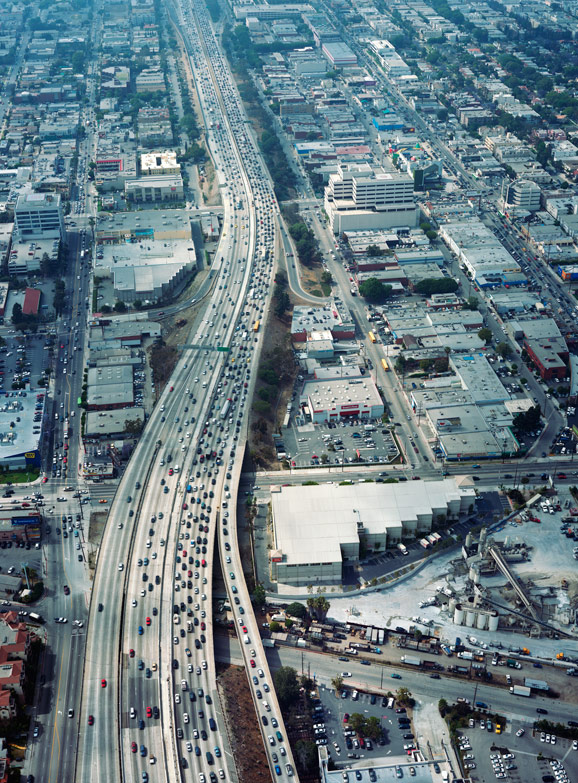Friday News Digest
Last night I was in the City of Garrison at their council meeting. While I certainly contributed to the length of the meeting, I hurried out the door when it was over so I could get the movie theatre and see the new Star Trek. Yes, I am a Trek fan. And yes, I really liked the movie. I think I would describe it as "fun", although you could also say action-packed.
Last week at APA I attended a session on the Ten Best Free Web Applications and was reintroduced to RSS through Google Reader. I took a short period of time to add some feeds and alerts. Now my weekly news digest has about three times the sources as I've ever had. Let's see if I can organize it for you.
Enjoy this week's news.
- I was a little bit surprised by all of the positive spin on the economy that was out there this week. Like this article, that seems to indicate that we are at the bottom and things are going to get better from here.
- And then there is this article about Fed Chairman Ben Bernanke, indicating initially that things are optimistic, before hitting us with:
More than 5 million jobs have vanished in the recession, and the Fed chief predicted "further sizable job losses" in the coming months. The unemployment rate stood at 8.5 percent in March, a quarter-century high.
By year's end, some economists believe the jobless rate could hit 10 percent, but the Fed stops short of that figure. Bernanke said the unemployment rate would probably climb somewhere in the 9 percent range.
- I am not asking newspapers to be gloom and doom, but like the Economist, I fear the complacency that would come if people thought this was really over.
- And there are actually lots of sound reasons to think that, even if we are at bottom now, it may be a long time before we start climbing again. Like the fact that there are fewer people who even qualify to buy homes today, especially since banks are starting to do crazy things like ask for a down payment.
- Or that people in general have a lot of debt, even outside of their mortgage.
- Perhaps I should be more optimistic since the stimulus money and the valuable investments that come from it are becoming reality.
- This is all discussed in the Urban Land Institute's recent report on American infrastructure investments. From the article:
The [ULI] report, "Pivot Point," highlights how China, India, and Europe have invested heavily in modern infrastructure over recent decades, while the U.S. has coasted on its own prosperity, content with patching and repairing its outdated bridges, roads, and other transit and water projects.
- It is all okay, however, since all we really need are a few fees and the problem will be "solved".
- But wait a second.....user fees only work if we are using the service. According to this article, we are changing our habits and that is likely to continue regardless.
- But maybe we could get further by simply reducing regulation? I would be all for this, generally everywhere.
- But if regulation fails, just make it "smart".
- Or move to Japan and feel good about it regardless, since, as this article states, in some places the water there contains an antidepressant.
- Was this just too easy to predict?
- And in perhaps a preview of the coming world, Scott County, Minnesota, is finding ways to make the park dollar go farther.
- And for our small towns that are trying to act like suburbs, here are some suburbs that are trying to do the opposite. I think the concept of "new ruralism" is the aesthetic incarnation (to a degree) of the movement we are trying to get started, that being the concept of a "Strong Town". It reinforces the notion that we can build towns that are fiscally healthy and have a strong sense of place.
- This article has nothing specifically to do with planning or small towns, but was utterly fascinating. After I read it, I had to read it again and then just sit and think about it for a long time. For anyone with a remote interest in the weirdness known as quantum mechanics, and even those without, the article poses the notion that we exist - and the universe as we see it exists - only as a result of our observation of it. Without anyone to observe it, all matter would exist in a quantum state (a state of "weirdness" as it has been called in other places) and not in a physical state. It is well written and not overly geeky - I recommend you give it a try.
- Pictures are powerful devices, so I wanted to share this link with you, even though it is of one of the most urban areas in the county. To me, Los Angeles demonstrates the utter failure of the auto-era development style, the manifestation of the end game so to speak. While our rural-area roads will never carry this amount of traffic, the idea that we can't possibly build enough capacity in this system to handle the demand for capacity the system creates is a very strong one.

